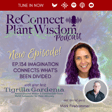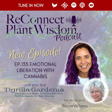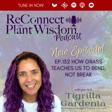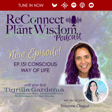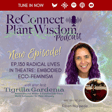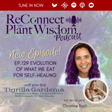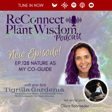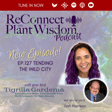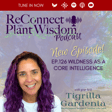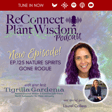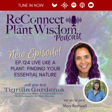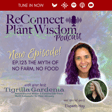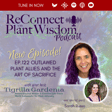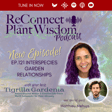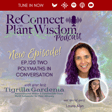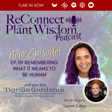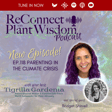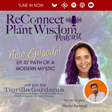
Ep.104 The Answer is in the Food with Samantha Jewel
The most powerful transformations often start with the simplest questions.
In this episode, I explore one of the most essential, yet overlooked, relationships in our lives—the one we have with food and the land it comes from.
Together with Samantha Jewel, we unpack how carbon in the soil is not just about climate—it's about connection, health, and the future of our ecosystem.
We talk about plant intelligence on a systems level—how carbon sequestration, nutrient density, and farmer consciousness all co-create the future.
And we ask the deeper questions: What if beauty wasn’t the measure of food quality? What if joy and relationship were?
Topics Covered about Conscious Food Choices and Regenerative Food Systems
➡️ The link between soil carbon, nutrient density, and plant-human co-creation.
➡️ Why the consciousness of the farmer affects the vitality of the land.
➡️ The myth of "organic" as a guarantee of health.
➡️ How the food we eat reflects our collective values and relationships.
Chapters
00:00 Introduction
01:20 Meet Samantha Jewel
06:00 Rethinking Carbon and Soil
10:00 What Regenerative Farming Really Looks Like
15:30 Gaia
18:00 Local Food & Land-Based Intelligence
26:00 The Consciousness of Farming
34:00 Reclaiming Food as Medicine
42:00 Final Thoughts + Samantha’s Book
//My Guest//
Samantha Jewel, a soil carbon expert of some 27 years giving her the title an “OG” in the carbon space, whose insights bridge the gap between sustainable agriculture and impactful environmental practices. With a wealth of experience as the CEO of Urth.io, her company specializes in carbon aggregation and the pivotal role farmer credits play in the ESG landscape.
Resources Mentioned
🌱 Samantha’s Book: Carbon is Not a Dirty Word
🌱 What's Your Spirit Wild Plant?
🌱 Personalized mentorship with me and the Plants
Expanded Show Notes
☝🏽ReConnect with Plant Wisdom podcast Ancient and modern knowledge from biology to spirituality about the wondrous ways plants help you lead a Naturally Conscious life.
Subscribe here and on your favorite podcast player.
👉🏽 Join the Naturally Conscious Community to nourish human-plant relationships
// Get to Know Me, Tigrilla //
// Let's Work Together //
// Shop from EcoConscious Partners //
Important Messages for Humanity on Gaia
More Partners
Opening and Closing music by @Cyberinga and Poinsettia.
// Let's Connect on Social // Facebook | Instagram | LinkedIn | Youtube

